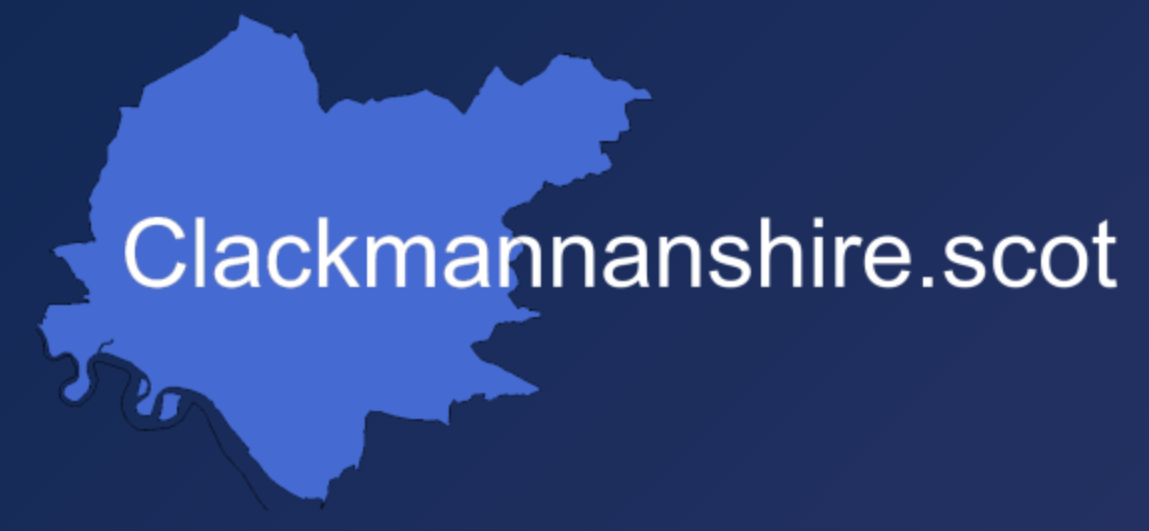Dollar is a village in the eastern hillfoots area of Clackmannanshire with a population of 2,800 in 2016. It is 12 miles east of Stirling.
Castle Campbell stands overlooking the town, sitting on a forward projection of rock on the south side of the Ochil Hills. The castle was the lowland seat of the Duke of Argyll, where Mary, Queen of Scots once stayed in the 16th century.

Castle Campbell - April 2022
The original village stands on the sloping ground beneath the castle, in what is now the north-east section of the village. Buildings here are mainly stone built and two storeys high. The oldest buildings date from the mid-17th century and several 18th century buildings exist. Development spread to the west and south through the 19th century.

Dollar Academy - main building as seen from the entrance gate - April 2022
The establishment of Dollar Academy in 1818, with its extensive grounds created a new focal point in the village. Around 1840 the construction of a new road to Muckhart on lower ground south of the original route, created the current main east–west street. This quickly became the focus of shops and public activity. The town has two war memorials, one for each world war. In the grounds of the Academy a bronze figure with outstretched hands by local sculptor George Henry Paulin faces westwards and commemorates the fallen of the First World War. The dead listed were largely from the Academy; two non-Academy deaths (the Archibald brothers) are indicated by the word "parish" against their names. The Second World War has a far more modest memorial, in the small public garden on the main road, where the road twists. Both memorials are by George Henry Paulin.
A small museum run by volunteers contains a collection of local items, and much information about the former Devon Valley Railway, which closed to passengers in 1964 and to freight in 1973.
Attempts were made to mine lead and copper in Dollar Glen from the 18th century, although they were not economic. Coal mining in the area began around the same time and, until 1973, supplied the Kincardine Power Station, and later, the Longannet Power Station with coal from the Upper Hirst seam. A tiny private non-NCB coal mine operated from the Harviestoun estate from the mid-1970s, partly filling the gap that the closed NCB left, whilst there was still local demand for coal.
Dollar Academy was founded with a bequest from former Dollar resident, Captain John McNabb. Amongst the many notable pupils at the Academy are James Dewar, the inventor of the vacuum flask; the grandsons of Haile Selassie I of Ethiopia; the second Presiding Officer (Speaker) of the Scottish Parliament, George Reid; BBC Gaza correspondent Alan Johnston; and political journalist for The Scotsman, the News of the World and The Spectator magazines, Fraser Nelson.
Captain John McNab or McNabb captained, owned and leased out many ships over the decades and it is known that at least four voyages transported black slaves to the West Indies in 1789–91, forty years before the Slavery Abolition Act 1833. In 2019, in order to understand the exact extent of John McNabb’s involvement in the slave trade, research into this was commissioned. McNabb bequeathed part of his fortune – £65,000, to provide "a charity or school for the poor of the parish of Dollar where I was born".
McNabb died in 1802 but it took another sixteen years before the school opened its doors, after much debate about how to use the bequest. The lands were granted by the local laird, Craufurd Tait of Harviestoun.
It was in 1815 that the Rev Dr Andrew Mylne DD (1776-1856), minister of Dollar, along with fellow trustees conceived of an academy to educate the boys and girls of the parish, and also pupils from outside Dollar, who would board with teachers. Full fees would be charged to 'non-residenters', while parish pupils would pay fees on a sliding scale, with some receiving free education.
Dollar hosts two of Clackmannanshire's remaining K6 telephone boxes.
References:
